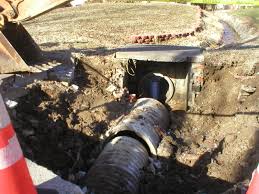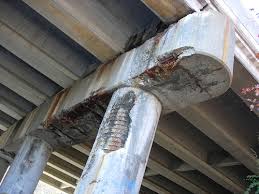We all know that earthquakes, floods, hurricanes, tornados and all the other many natural disasters can disrupt society. I mean, if you have ever experienced one of these disasters you will agree, it is unbelievable – almost surreal. Everything as far as the eye can see looks like a bomb went off (not that I've actually witnessed a bomb going off - but I have seen the destruction hurricanes leave.)
It’s amazing that in a split second what once was a thriving city could be reduced down  to a million little pieces of shard wood and metal bits. Buildings collapse, water mains burst, and fires erupt from broken gas lines and power lines. It’s literally like hell on earth to those living through it.
to a million little pieces of shard wood and metal bits. Buildings collapse, water mains burst, and fires erupt from broken gas lines and power lines. It’s literally like hell on earth to those living through it.
What we don’t see right away is the panic of the people and then the total societal disruption. Let’s face it our society depends heavily on working infrastructure systems such as electricity, water, and transportation. In fact, most times we don’t even give a second thought to these things. But let our flight be late just a few minutes … well, see what I mean? Then you become aware of it.
Now think disaster or better yet catastrophic event. Water mains busted. Buildings and homes collapse and/or burning. No power. Bridges destroyed. Airport runways cracked. This is when it will becomes evident that our infrastructures are no longer there for us, in a big way.
 Now let me throw this into the mix.The declining infrastructures of the U.S. The American Society of Civil Engineers gave our infrastructures a grade of "D" (on an "A" to "F" scale). We are falling apart! And, because our infrastructure systems are so interlocked there is a high likelihood that if damage and destruction occur in one location that it could actually disrupt services to other areas as well. Societal disruption and panic will then set in as our quality of life is compromised.
Now let me throw this into the mix.The declining infrastructures of the U.S. The American Society of Civil Engineers gave our infrastructures a grade of "D" (on an "A" to "F" scale). We are falling apart! And, because our infrastructure systems are so interlocked there is a high likelihood that if damage and destruction occur in one location that it could actually disrupt services to other areas as well. Societal disruption and panic will then set in as our quality of life is compromised.
Disaster by its very definition is a "disruption of the functioning of a community or a society causing widespread human, material, economic or environmental losses which exceed the ability of the affected community or society to cope using its own resources."
After a disaster, things can slowly spin out of control due to the shortages of basic supplies. People in need of shelter, food and water will begin to search out these supplies. Some by loot the grocery stores and if desperate enough, move on to neighborhoods and loot them as well. Some will actually resorting to robbing others. And yet others, will begin taking consumer products such as electrical appliance (yes, even though there is no electricity), burning buildings, breaking into ATM machines, destroying store fronts and harming people out of panic.
So what should we take from all of this? Well simply, that we live in a very fragile nation with very reliant people. And, more than ever - you need to be prepared. Just sayin'.
- Survivor Jane

If you have any questions, or would like to see a specific article addressing survival preparedness for women on SurvivorJane.com click hereThank you for sharing Survivor Jane with your friends!

